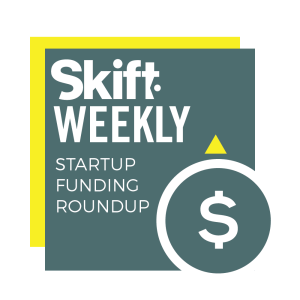Smartair Raises $6 Million for Dynamic Packaging Tech: Travel Startup Funding This Week

Skift Take

Travel Startup Funding This Week
Each week we round up travel startups that have recently received or announced funding. Please email Travel Tech Reporter Justin Dawes at jd@skift.com if you have funding news.This week, travel startups announced more than $46 million in funding.
We reported on Thursday that Mews Systems had raised a $33 million Series B round led by Battery Ventures.
>>Smartair, a search engine for flights and vacation packages, has raised a $6 million Series A round.
Travel agency Talma Travel and Tours led the round along with Alpha Capital.
Smartair and Talma plan to create a company that helps run and market tourism websites in Israel and overseas, using the system built by Smartair. The startup lets travelers put together flights and hotels via so-called dynamic packaging.
In Africa, Smartair wants to accelerate the move from traditional retail travel agencies to online travel services. It's setting up websites led by locals, replicating a model it has used in some Middle Eastern countries.
For example, three months ago South African online travel booking site Travelcheck opened under CEO Odette Faling, and it aims to appeal to travelers outbound from South Africa. It uses Smartair's tech. Metcalf, a private equity firm, is advising the privately owned Travelcheck, which partly makes money through affiliate deals with media companies.
Smartair, founded in 2015 by Erez Bousso, said it sold hundreds of thousands of plane tickets last year via all of its markets.
>>Tipi, a company offering hostels hardware and software to simplify property management, has raised a $3 million ($4.45 million Australian) investment.
Hostelworld, one of the largest online travel agencies for booking hostels, made the strategic investment. It plans to help the Australian startup, founded in 2014, sign up about 1,500 properties by year-end. For context, see Skift's deep dive The Big-Money Reinvention of the Humble Hostel.
>>Locale, a brand of boutique "aparthotels," raised $2.5 million in a seed round closed earlier this year.
Amplo and Susa Ventures led the round, the startup's first funding since it debuted in Austin, Texas, in late 2016.
Like Sonder, WhyHotel, and others, Locale leases units in luxury apartment buildings, decorates them, markets them via online travel agencies for daily or short-term stays, and takes a cut of the revenue. It operates in cities such as Austin, Houston, Dallas, Nashville, and San Francisco.
>>Tastemakers, a service matching travelers with local African tours that go beyond the best-known options, has raised $1.4 million in a seed round.
Precursor Ventures led the round.
The startup is active in its role as an aggregator. Tastemakers advises operators on how to market and price their experiences online. CEO Cherae Robinson founded the company in 2014, and it's now based at the New York office of startup club Voyager HQ.
Partners include Uber Africa and Kempinski Hotels. Last year, Booking.com awarded the business a grant of about $112,000 (€100,000).
Tastemakers was one of Skift's Top Travel Startups to Watch this year.
Skift Cheat Sheet:
We define a startup as a company formed to test and build a repeatable and scalable business model. Few companies meet that definition. The rare ones that do often attract venture capital. Their funding rounds come in waves.
Seed capital is money used to start a business, often led by angel investors and friends or family.
Series A financing is typically drawn from venture capitalists. The round aims to help a startup's founders make sure that their product is something that customers truly want to buy.
Series B financing is mainly about venture capitalist firms helping a company grow faster, or scale up. These fundraising rounds can assist with recruiting skilled workers and developing cost-effective marketing.
Series C financing is ordinarily about helping a company expand, such as through acquisitions. In addition to VCs, hedge funds, investment banks, and private equity firms often participate.
Series D, E and beyond These mainly mature businesses and the funding round may help a company prepare to go public or be acquired. A variety of types of private investors might participate.
Check out Skift's Top Travel Startups to Watch in 2019, here.





